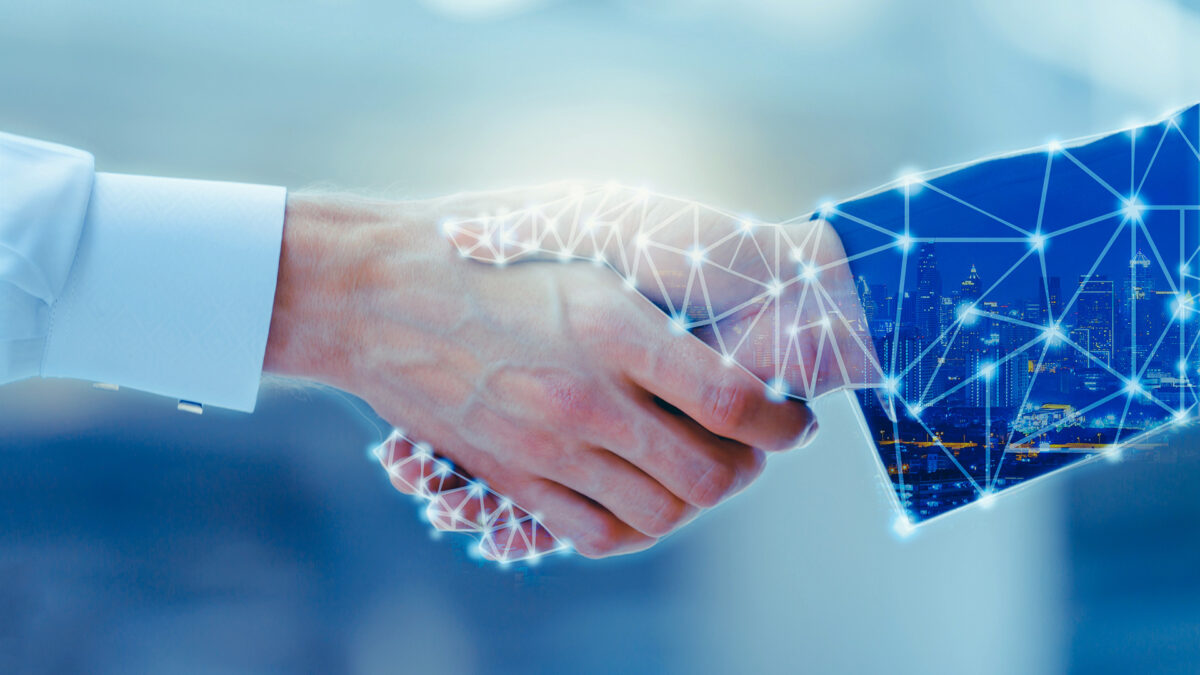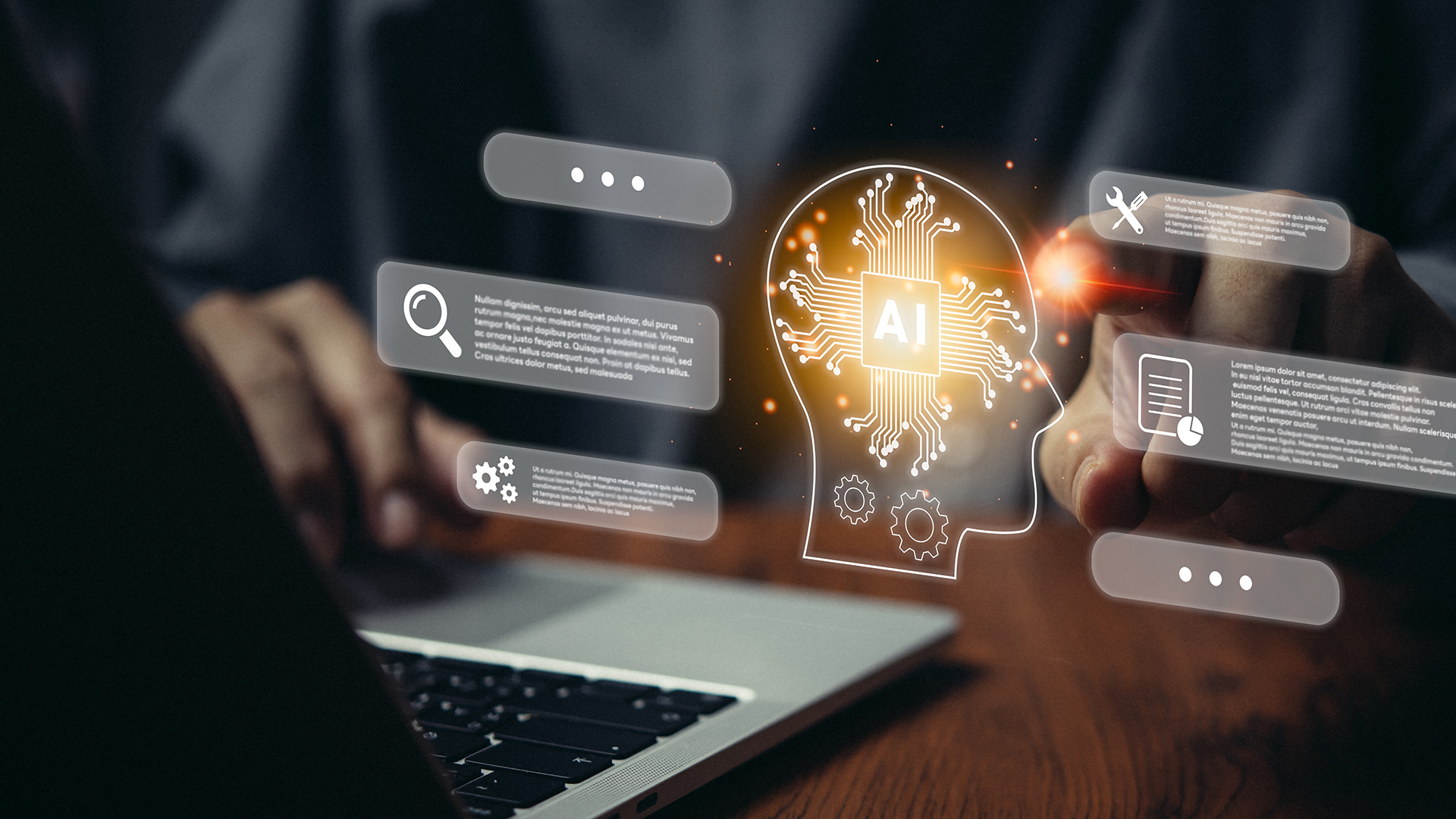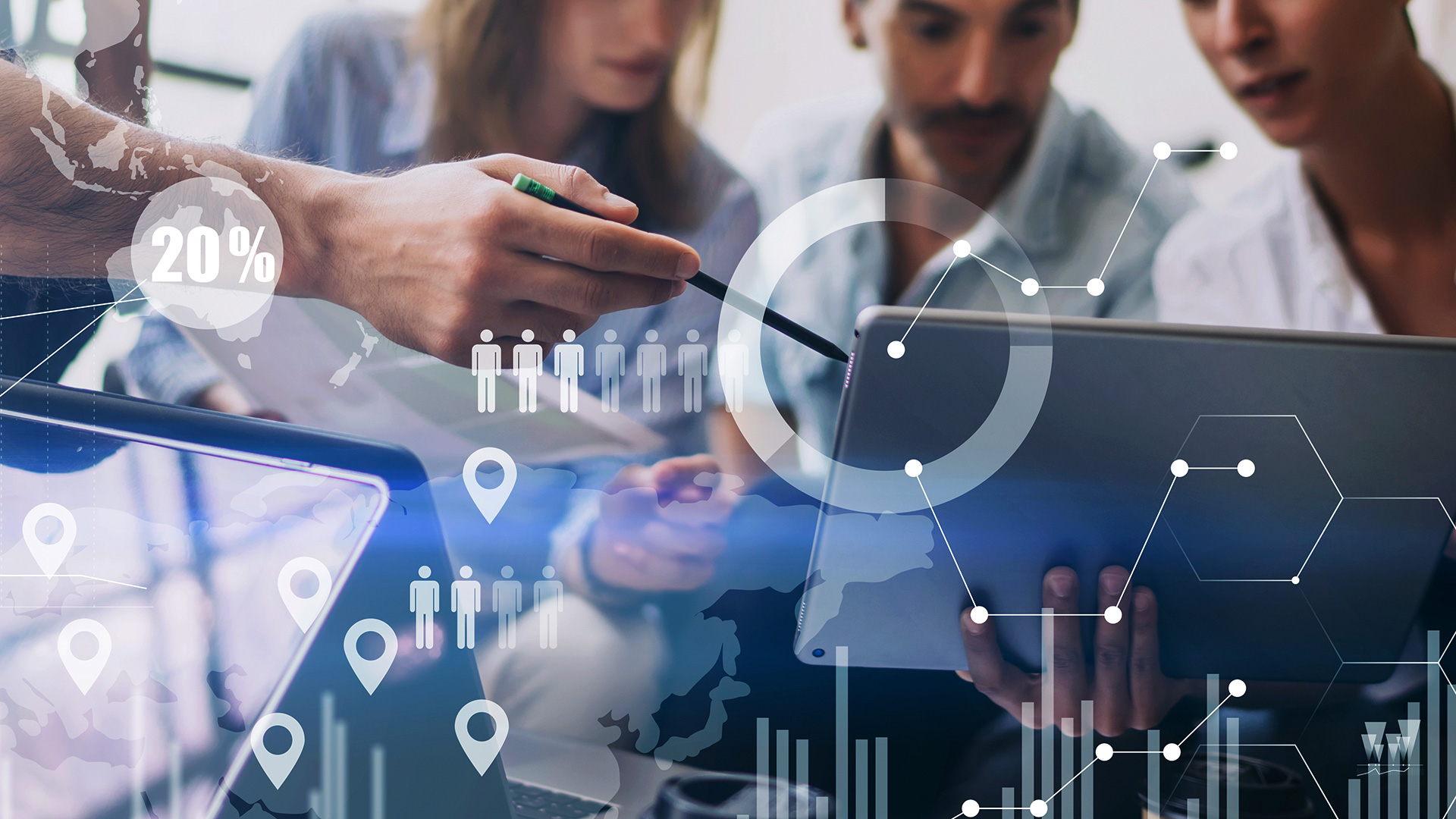
With the launch of ChatGPT earlier this year, all eyes are on artificial intelligence (AI) in the workplace. AI is now at the forefront of innovation in human resources management (HRM), and it’s quickly proving to play a transformative role in fostering greater efficiency and decision-making among HR leadership.
Although the adoption of AI in HR has accelerated over the past year, it is not entirely new to the field. Chatbots, performance management tracking, and other AI solutions have been used by HR teams for several years already. A recent survey from Gartner found that 81% of human resources leaders “have explored or implemented artificial intelligence (AI) solutions to improve process efficiency within their organizations.”
Thanks to recent advances in machine learning algorithms and generative AI, the latest AI technologies are much more powerful than ever before. We’re now witnessing the rapid-fire launch of new AI software platforms fostering incredible innovation in HRM, from recruiting to onboarding to talent management.
At a time when AI poses incredible benefits for businesses, HR departments can benefit tremendously from adopting new solutions on the market. In this article, we’ll explore some practical use cases for AI in HR and discuss how human resources leaders can prepare themselves for the future of AI-powered HR leadership.
Artificial intelligence refers to machines or computer systems that simulate human intelligence to perform tasks that require cognition and interpretation.
There are several subcategories of AI; one of the most prevalent is machine learning. Machine learning utilizes algorithms to learn from data and make subsequent predictions or decisions.
Generative AI is another newer form of AI that is capable of creating new and original text or images. ChatGPT and DALL-E are some of the most well-known generative AI solutions increasingly used in the workplace, particularly among creative teams. ChatGPT also uses natural language processing (NLP), a machine learning technology that can understand and generate text.

AI holds enormous potential to streamline HR processes and enhance decision-making within human resources departments. AI technologies greatly reduce administrative burdens and amplify strategic capabilities by automating repeat tasks, generating rich data insights, and uncovering potential workplace issues.
Let’s take a look at some AI applications in HR:
Hiring and recruiting can be extensive and tedious, frequently taking up a sizable amount of HR resources. With the help of AI, HR teams can introduce efficiency to every stage of the hiring cycle — from sourcing to candidate engagement to selection. AI-powered recruiting technologies can tackle the following responsibilities, among others:
The onboarding experience is the employee’s first glimpse into their new employer. Yet despite its role in shaping the employee’s perception of their employer, the onboarding process is often mundane, tedious, and prone to error.
AI can help make the onboarding flow much more efficient, personalized, and engaging for employees by automating common tasks, such as:
On the heels of the Great Resignation and amidst ongoing issues with employee satisfaction and productivity, engagement has become a crucial focus.
As more and more companies introduce employee engagement initiatives, AI can go a long way in helping employees feel connected to their companies and roles. Some examples of AI-powered employee engagement functions include:
Skill development and leadership training are instrumental in improving employee retention and satisfaction. A recent survey found that over half of employees would consider leaving a company if they felt they needed more professional development opportunities.
What makes AI particularly valuable for professional development is that it can create personalized learning paths that take into account individual skill sets and preferences. By harnessing data and predictive analytics, AI can identify skill gaps and make tailored recommendations for training courses and mentorship opportunities.

Organizations that embrace AI technologies are poised to improve worker productivity and free up time to focus their efforts on higher-level strategies. According to a recent survey from the Society for Human Resource Management, 85% of employers that use automation or AI report that it saves them time and/or increases their efficiency.
Here’s a closer look at some of the benefits of using AI technologies for HR purposes:
With its ability to automate tasks and unearth rich data insights, AI can improve many key performance metrics — such as time to hire, cost per hire, candidate quality, and employee satisfaction.
AI can offload time-consuming and repetitive admin tasks, such as those related to recruiting, onboarding and offboarding, and employee benefits questions. This gives HR teams more time to focus on higher-level, people-first initiatives, such as building a positive workplace culture and improving employee wellbeing.
AI helps reduce human bias and subjectivity that often seeps into hiring processes, employee recognition efforts, and salary decisions. Instead, it examines patterns and large volumes of data and makes tactical decisions accordingly.
HR teams can take a more proactive approach to reducing attrition with the help of AI technology. AI is able to spot signs of worker dissatisfaction before they escalate. It can also automate functions that are proven to increase employee happiness — such as skill development, recognition, and communication.
With so many software solutions on the market that utilize artificial intelligence, it can be challenging for HR and executive leaders to hone in on the best options for their company. Here are a few best practices to keep in mind as you begin your search:
Is your goal to bring more value to recruiting? Talent management? Benefits administration? Pick one or more areas that would benefit from AI technology so that you can narrow down your search to specific software categories. Be sure to consider how these areas for improvement align with your overall HR strategy.
Rather than opting for a platform that fuses HR and innovation, it’s preferable to choose an AI software provider in the HR niche. AI companies are more likely to be at the forefront of innovation, utilizing a team of talented data scientists to develop robust and adaptable solutions.
It’s essential to consider customer reviews, case studies, and references to assess vendor track records. You’ll want to get a feel for each provider’s customer service, end-user experience, and level of innovation.
As your company shifts and grows, you’ll want to adjust your technology to support new strategies, challenges, or changes in workforce size. Make sure that your software of choice can be easily customized and scaled up to accommodate significant business changes.

Artificial intelligence is a daunting topic for many professionals, with concerns about job security and ethics often controlling the conversation. However, the reality is that AI is not going away anytime soon, and we will continue to develop legal and ethical precedents that address these concerns.
AI will inevitably continue to reshape organizations, and HR leaders who embrace the technology now are sure to come out ahead. Here are some practical ways in which HR leaders can prepare for AI adoption:
AI may be complex, but people at every skill level can understand the basics. Human resources professionals should consider building their foundational understanding of AI, its capabilities, and its potential impact on HR processes.
Depending on the HR professional’s specific role, acquiring basic technical skills, such as data analytics, may be beneficial. There are many degree programs, online courses, AI certifications, conferences, and webinars aimed at getting HR professionals up to speed.
One of the best things HR teams can do to prepare for AI adoption is to invest in data infrastructure and maintenance. AI relies on large volumes of data to generate insights, which underscores the importance of accurate data collection and storage.
Before jumping on the AI bandwagon, HR teams need to hone in on how exactly they should harness AI for maximum value. Human resources leaders should start by assessing their organization’s readiness for AI adoption by evaluating current processes, budgets, and training resources. They should then define clear and strategic HR objectives and consider ways AI can support these goals.
As human resources teams adopt AI solutions at an accelerated pace, now’s the time to explore AI technology while also renewing a focus on the employee experience.
Human interactions are more important than ever in our digitized world. Today’s employees actually seek workplace connection and purpose at much higher levels than previous generations.
It’s important to realize AI technology is not an obstacle to cultivating connections in the workplace. On the contrary, it frees up time spent on mundane processes and enables HR leaders to put more energy into employee initiatives — such as recognition and wellness programs. These employee-first programs are key to driving performance and company-wide satisfaction.
If you’d like to learn more about cultivating employee engagement and recognition programs, be sure to subscribe to our newsletter. You’ll get up to date on the latest trends and innovative HR practices and be notified of our upcoming free webinars featuring industry experts. Click here to subscribe!
AI Ate My JOB! Facts, Predictions and Insights on How AI Will Impact Our Workplace
Rewards and Recognition Programs – KPIs to Measure and Their Meaning
WorkProud is committed to helping its clients create a unified approach to the employee experience by helping them build cultures of workplace pride. Trusted by millions of users at some of the world’s most recognized employer brands, WorkProud delivers a comprehensive approach to building company cultures that inspire people to be Proud of their Work and Proud of their Company.
Here you will find insights curated for leadership seeking in-depth industry knowledge. Explore comprehensive studies, helpful guides, and expert white papers.
*By selecting “VIEW RESOURCES,” you agree to WorkProud’s Privacy Policy. You may unsubscribe from our emails at any time. Please note when unsubscribing: it may take up to 10 business days for your request to take effect.